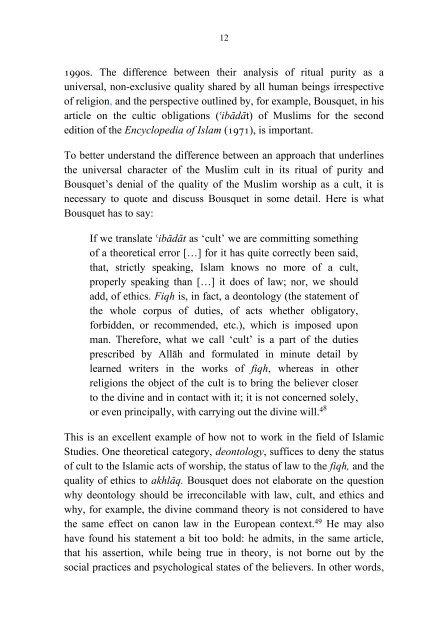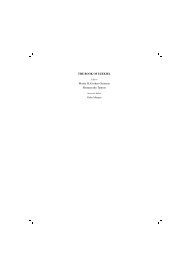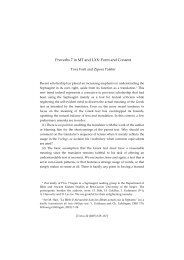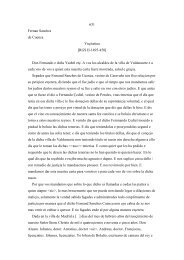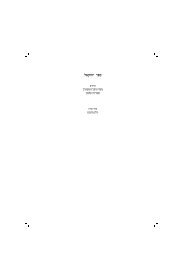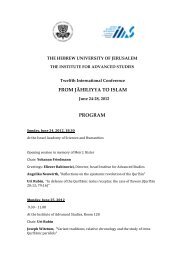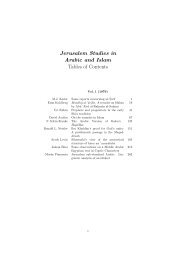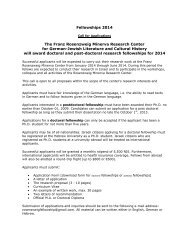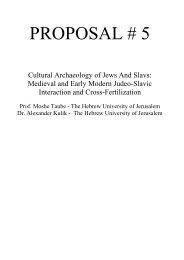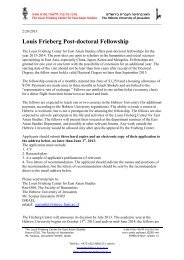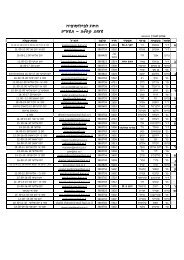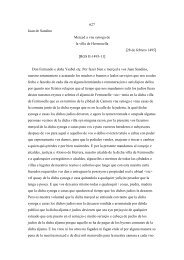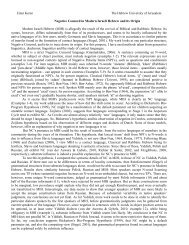Baber Johansen
Baber Johansen
Baber Johansen
Create successful ePaper yourself
Turn your PDF publications into a flip-book with our unique Google optimized e-Paper software.
12<br />
1990s. The difference between their analysis of ritual purity as a<br />
universal, non-exclusive quality shared by all human beings irrespective<br />
of religion, and the perspective outlined by, for example, Bousquet, in his<br />
article on the cultic obligations (ÝibÁdÁt) of Muslims for the second<br />
edition of the Encyclopedia of Islam (1971), is important.<br />
To better understand the difference between an approach that underlines<br />
the universal character of the Muslim cult in its ritual of purity and<br />
Bousquet’s denial of the quality of the Muslim worship as a cult, it is<br />
necessary to quote and discuss Bousquet in some detail. Here is what<br />
Bousquet has to say:<br />
If we translate ÝibÁdÁt as ‘cult’ we are committing something<br />
of a theoretical error […] for it has quite correctly been said,<br />
that, strictly speaking, Islam knows no more of a cult,<br />
properly speaking than […] it does of law; nor, we should<br />
add, of ethics. Fiqh is, in fact, a deontology (the statement of<br />
the whole corpus of duties, of acts whether obligatory,<br />
forbidden, or recommended, etc.), which is imposed upon<br />
man. Therefore, what we call ‘cult’ is a part of the duties<br />
prescribed by Allāh and formulated in minute detail by<br />
learned writers in the works of fiqh, whereas in other<br />
religions the object of the cult is to bring the believer closer<br />
to the divine and in contact with it; it is not concerned solely,<br />
or even principally, with carrying out the divine will. 48<br />
This is an excellent example of how not to work in the field of Islamic<br />
Studies. One theoretical category, deontology, suffices to deny the status<br />
of cult to the Islamic acts of worship, the status of law to the fiqh, and the<br />
quality of ethics to akhlÁq. Bousquet does not elaborate on the question<br />
why deontology should be irreconcilable with law, cult, and ethics and<br />
why, for example, the divine command theory is not considered to have<br />
the same effect on canon law in the European context. 49 He may also<br />
have found his statement a bit too bold: he admits, in the same article,<br />
that his assertion, while being true in theory, is not borne out by the<br />
social practices and psychological states of the believers. In other words,


